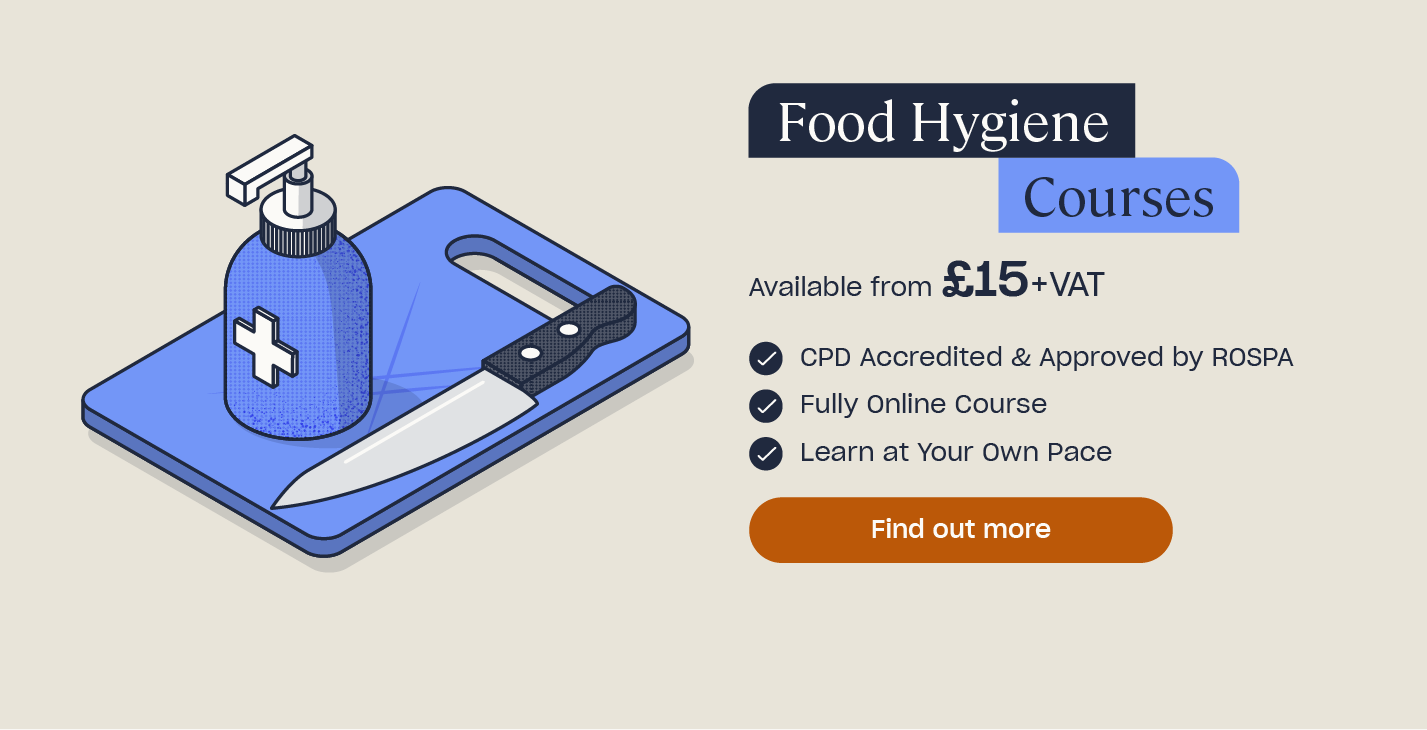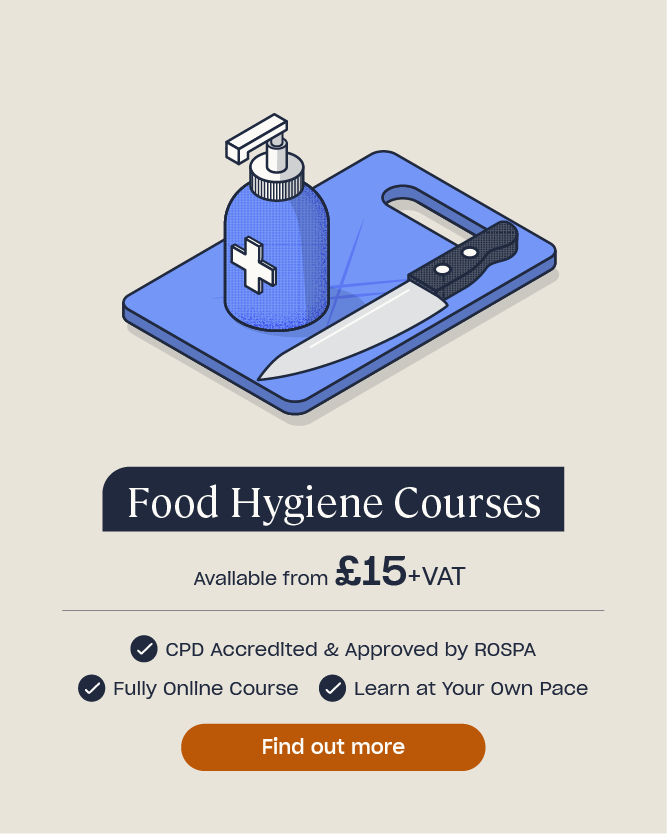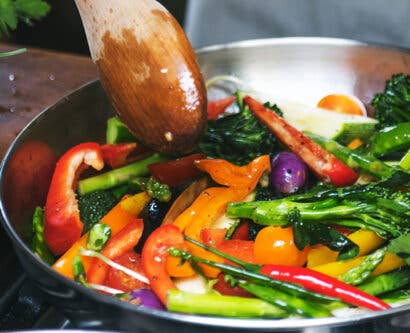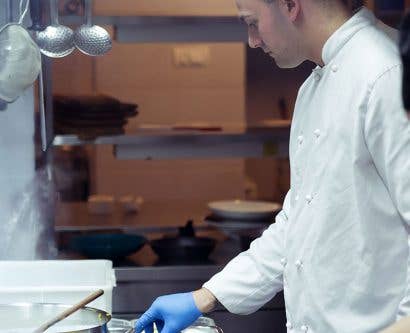Do I Need a Food Hygiene Certificate to Sell Food?
As a leading food hygiene training provider, we often receive queries about which job roles require you to obtain food hygiene certification. If you plan to sell food commercially – whether you’re selling food from your own home, selling cakes on a market stall, or opening a food truck business – it’s the law to receive the necessary level of food hygiene training.
What Food Hygiene Certificate Do I Need to Sell Food?
The specific level you need depends on how involved you are in the preparation and handling of food. To help you determine which is right for you, this guide will look at some examples of selling food in places other than restaurants and takeaways. It’ll explain which type of food hygiene training you should acquire and why.
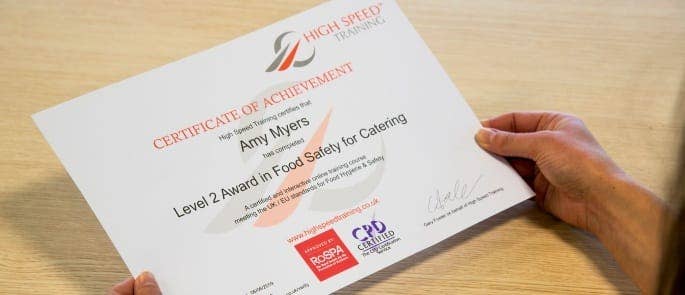
Understanding this is important if you want to sell food legally and safely to the public.
Do I Need a Certificate To Sell Food From Home?
If you’re running a catering business from home – whether you’re selling pies, cakes, or ready-made dinners – you must know how to safely store, prepare, handle, and distribute the food. Even though you’re cooking at home to sell it, distributing food commercially (such as at a charity event or market) means you’re legally required to ensure it’s safe for consumption. This also means you are subject to EHO inspections.
You need to acquire a Level 2 Food Safety and Hygiene for Catering certificate if you prepare and distribute the food yourself.
Even if you’re selling pre-packaged food from home, it’s still advised that you take Level 2 Food Hygiene training. This is because you need to know important information about preserving the food’s safety and quality before you sell it to customers, as well as prove to local authorities that you’re compliant.

There are other requirements beyond obtaining a food safety certificate when selling food from home. If you’d like further advice, read our comprehensive guides below:
Do I Need a Certificate if Selling Food on a Market Stall?
If you’re planning to sell food at a market, you must know how to safely store, prepare, handle, and distribute it. Whether you’re selling cakes on a market stall, selling homemade food at craft fairs, or selling food at a farmer’s market, food safety law requires you to ensure your food is fit for consumption.
You need to acquire a Level 2 Food Safety and Hygiene for Catering certificate if you prepare and distribute the food yourself.
If you’re selling pre-prepared, fresh food (such as ready-to-eat cakes, pies, and other pastries), it’s still advised that you take Level 2 Food Hygiene training. This is because you need to know important information about preserving the food’s safety and quality before you sell it, as well as prove to local authorities that you’re compliant.

If you’re simply attending a market stall to sell pre-packaged, low-risk food that you didn’t make (such as jars of jam and packets of pasta), Level 1 Food Hygiene training is usually sufficient.
Keep in mind that, when selling food on a market stall, you may be subject to other requirements beyond obtaining a food safety certificate. For example, you may need to obtain a market stall licence or street trading license, as well as register with your local authority if you’re in charge of setting up the stall.
Do I Need a Certificate if Setting Up A Food Stall at a Festival?
To set up a food stall at a festival, you must know how to safely store, prepare, handle, and distribute the food. Food stall vendors are expected to demonstrate this knowledge, and evidence of food hygiene training is an effective way to satisfy legal authorities.
You need to acquire a Level 2 Food Safety and Hygiene for Catering certificate if you prepare and distribute the food yourself.
If you’re selling pre-prepared food, it’s still advised that you take Level 2 Food Hygiene training. This is because you need to know important information about preserving the food’s safety and quality before you sell it to customers, as well as prove to authorities that you’re compliant.

There are other requirements beyond obtaining a food safety certificate when selling food at a festival. If you’d like further advice, check out our dedicated article below:
Do I Need a Certificate to Sell Food From a Food Truck?
You may be surprised to learn that starting a street food business requires just as much compliance as running a restaurant or takeaway, and this includes receiving food hygiene training. When selling street food from a truck, you must know how to safely store, prepare, handle, and distribute it so it’s fit for consumption.
You need to acquire a Level 2 Food Safety and Hygiene for Catering certificate if you prepare and distribute the food yourself.
If you’re in a more senior position than food handler, such as if you run the whole food truck business yourself, you need a higher level of training. Level 3 Supervising Food Safety in Catering will give you the knowledge you need to implement and manage a HACCP plan, which is necessary for running the business long-term.

Be aware that, in order to set up a food truck and sell street food, there are other requirements beyond obtaining a food safety certificate. If you’d like further advice check out our comprehensive guide below:
Can’t Find What You’re Looking For?
If none of these fit your role, have a look at our food hygiene course chooser, which will ask you a series of questions to determine what level of training is right for you:
Wherever you sell food to customers, no matter what type it is, chances are that you’ll need some level of food hygiene training. It’s well worth doing your research and investing in the right training, so you can demonstrate due diligence to local authorities and protect the wellbeing of those who buy your food.
What to Read Next:
- How to Set Up a Food Stall at a Festival
- Is Street Food Safe? A Street Food Hygiene Guide for Consumers
- What Food Hygiene Certificate Do I Need?
- Food Hygiene Quiz
- How to Start a Street Food or Food Truck Business
- Online Food Hygiene Training Courses


